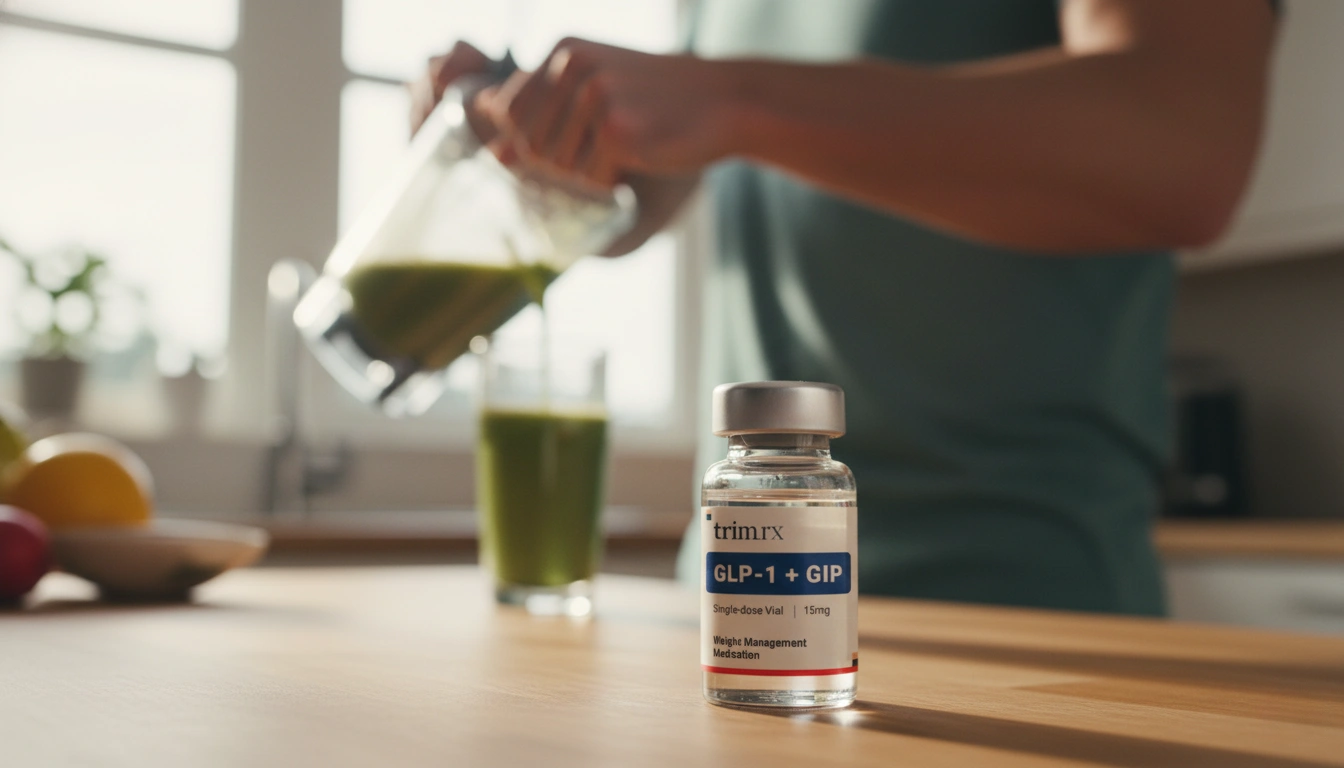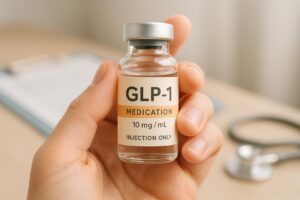Do GLP-1 Medications Stop Working? Understanding Weight Loss Plateaus and Solutions

In the quest for effective weight loss solutions, one topic that has generated significant interest and questions is the efficacy of GLP-1 medications. These medications, including popular options such as Ozempic® and Wegovy®, have transformed the landscape of weight management, proving to be effective for many individuals seeking to lose weight. However, a pressing question arises: do GLP-1 medications stop working?
Recent studies and anecdotal evidence suggest that while these medications can lead to substantial weight loss initially, some individuals eventually experience a plateau where further weight loss becomes challenging. This phenomenon is not unique to GLP-1 medications but is a common occurrence in many weight loss strategies. In this blog post, we will explore the reasons behind this plateau, the factors influencing medication effectiveness, and strategies to overcome these challenges.
Together, we will delve into the science behind GLP-1 medications, how they interact with our bodies, and what steps can be taken when progress stalls. By the end of this article, you’ll have a comprehensive understanding of what it means when people say GLP-1 medications stop working and how to navigate through potential plateaus.
Introduction
Did you know that nearly 42% of adults in the United States are classified as obese? This alarming statistic highlights the growing obesity epidemic and the urgent need for effective weight management solutions. For many, GLP-1 medications have emerged as a viable option, providing a pathway to significant weight loss and improved health outcomes. These medications work by mimicking the effects of the glucagon-like peptide-1 hormone, which regulates appetite and insulin secretion.
While initial weight loss results can be impressive—often ranging from 15% to 20% of total body weight—many individuals find themselves facing a frustrating plateau after several months of treatment. This plateau can lead to questions about the medications’ effectiveness and whether they’ve truly stopped working.
In this blog post, we aim to clarify the complexities surrounding GLP-1 medications, explore the reasons behind weight loss plateaus, and discuss actionable strategies that can help re-ignite weight loss progress. We will also highlight our personalized weight loss programs at TrimRx, which can provide tailored support to individuals navigating these challenges.
Let’s embark on this journey together, exploring the ins and outs of GLP-1 medications and how we can work toward achieving sustainable weight loss.
Understanding GLP-1 Medications
What Are GLP-1 Medications?
GLP-1 medications, or glucagon-like peptide-1 receptor agonists, are a class of drugs primarily used to treat type 2 diabetes. However, their ability to promote weight loss has made them increasingly popular among individuals seeking to manage obesity. Medications such as Ozempic®, Wegovy®, Mounjaro®, and Zepbound® have garnered attention for their effectiveness in reducing body weight.
These medications function by mimicking the GLP-1 hormone, which is naturally produced in the gut. By activating GLP-1 receptors, these drugs help to:
- Reduce appetite and food intake.
- Increase feelings of fullness (satiety).
- Slow down gastric emptying, leading to prolonged digestion.
The end result is a decrease in caloric intake, which can lead to weight loss over time.
The Initial Success of GLP-1 Medications
Clinical trials have shown that participants using GLP-1 medications can lose a significant amount of weight. For instance, individuals using Wegovy® have reported weight loss averages of around 15% of their body weight over a 68-week period. Many people experience early success on these medications, with noticeable changes occurring within the first few weeks.
Why Do GLP-1 Medications Work Initially?
The initial success of GLP-1 medications can be attributed to several factors:
-
Hormonal Regulation: GLP-1 medications help regulate hormones related to hunger and fullness, such as insulin and glucagon. This regulation can lead to decreased appetite and less frequent cravings.
-
Metabolic Changes: These medications can enhance metabolic processes, making it easier for the body to burn fat and utilize energy effectively.
-
Behavioral Modifications: Many individuals also adopt healthier eating habits and increase their physical activity levels when starting these medications, further facilitating weight loss.
Transitioning to a Plateau
Despite the promising initial results, it is not uncommon for individuals to experience a plateau in their weight loss journey after several months of using GLP-1 medications. In fact, many users report that their progress begins to stall, leading to frustration and concern.
What Causes Weight Loss Plateaus?
Understanding the Plateau Phenomenon
A weight loss plateau occurs when an individual stops losing weight despite continued adherence to their diet and medication regimen. This phenomenon is not unique to GLP-1 medications; it is a common experience across various weight loss strategies, including traditional dieting and exercise programs.
Biological Factors
When it comes to weight loss, our bodies are designed to maintain homeostasis, which means they strive to keep our weight within a certain range. When we lose weight, several biological responses come into play:
-
Metabolic Adaptation: As we lose weight, our basal metabolic rate (BMR)—the number of calories our body requires at rest—decreases. This means that as we shed pounds, we may require fewer calories to maintain our new weight.
-
Hormonal Adjustments: Hormones such as ghrelin (the hunger hormone) may increase as we lose weight, leading to heightened feelings of hunger and cravings. Concurrently, levels of satiety hormones may decrease, making it harder to feel full.
-
Set Point Theory: Our bodies have a “set point” weight that they naturally try to maintain. When we lose weight, our bodies may resist further weight loss by slowing metabolism and increasing hunger signals.
Psychological Factors
In addition to biological responses, psychological factors can also contribute to plateaus:
-
Expectations: Many individuals set specific weight loss goals based on the initial results of their medication. When progress slows, it can lead to disappointment and a sense of failure.
-
Motivation: Weight loss journeys require ongoing motivation and commitment. As plateaus occur, some individuals may struggle to stay motivated and may revert to old habits.
-
Lifestyle Changes: Changes in activity levels, dietary habits, or stress management strategies can affect weight loss. If an individual becomes less active or does not maintain healthy eating patterns, it can hinder progress.
Duration of the Plateau
Plateaus can last for weeks or even months, and the duration may vary from person to person. Understanding that plateaus are a normal part of the weight loss process can help individuals maintain a positive mindset.
Strategies to Overcome Weight Loss Plateaus
1. Reevaluate Your Diet
A thorough assessment of your dietary habits can help identify areas for improvement. Here are some key considerations:
-
Caloric Intake: As your weight decreases, your caloric needs may also change. It may be beneficial to reassess your daily caloric intake and adjust accordingly.
-
Nutrient Quality: Focus on nutrient-dense foods that provide essential vitamins and minerals. Incorporate more whole foods, lean proteins, and high-fiber options to promote satiety.
-
Meal Timing: Experiment with meal timing strategies, such as intermittent fasting or scheduled eating windows, to help manage hunger and cravings.
2. Adjust Your Medication
If you find yourself at a plateau despite a healthy lifestyle, it may be time to discuss medication adjustments with your healthcare provider. This could involve:
-
Dosage Changes: Sometimes, increasing the dosage of your GLP-1 medication can help reignite weight loss. Working with a healthcare professional, we can determine the right dosage for your needs.
-
Switching Medications: If you’ve reached the maximum dosage of your current medication, your healthcare provider may recommend trying a different GLP-1 medication or exploring other options like tirzepatide (Mounjaro) or Zepbound.
3. Enhance Physical Activity
Incorporating regular physical activity into your routine is crucial for overcoming weight loss plateaus. Here are some tips:
-
Strength Training: Building muscle can boost your metabolism and help maintain lean body mass during weight loss. Aim for strength training exercises a few times a week.
-
Increase Cardiovascular Exercise: Engaging in aerobic activities can help burn additional calories. Consider incorporating high-intensity interval training (HIIT) or longer duration cardio sessions into your routine.
-
Stay Active Throughout the Day: Look for opportunities to increase daily movement, such as walking more, taking the stairs, or participating in active hobbies.
4. Address Lifestyle Factors
Lifestyle factors play a significant role in weight loss success. Consider the following:
-
Stress Management: High levels of stress can lead to emotional eating and hinder weight loss. Implement stress-reduction techniques such as mindfulness, meditation, or yoga.
-
Sleep Quality: Prioritize getting sufficient, quality sleep each night. Poor sleep can disrupt hormonal balance and increase appetite.
-
Consistency: Ensure that you are taking your medication consistently, as irregular use can lead to weight regain or slower progress.
5. Seek Support
Having a support system can make a significant difference in your weight loss journey. Consider:
-
Working with Healthcare Professionals: Engaging with a healthcare provider who specializes in obesity medicine can provide personalized guidance and adjustments to your weight loss plan.
-
Joining Support Groups: Connecting with others who share similar goals can provide motivation and accountability. Look for local or online support groups focused on weight loss.
Conclusion
The journey toward weight loss can be challenging, especially when faced with plateaus. Understanding the factors that contribute to these plateaus and implementing effective strategies can help individuals overcome obstacles and continue making progress.
At TrimRx, we are dedicated to providing personalized weight loss solutions that empower individuals to achieve their goals. Our comprehensive weight loss programs include tailored treatment plans, access to FDA-registered medications, and unlimited support to ensure you stay on track.
If you are ready to take the next step on your weight loss journey, we encourage you to take our free assessment quiz to see if you qualify for our personalized weight loss medications. Together, we can navigate the complexities of weight management and work toward achieving sustainable results.
FAQ
How long does it typically take to see results from GLP-1 medications?
Most individuals begin to notice weight loss within a few weeks of starting GLP-1 medications, with optimal results often seen within 68 weeks.
Why do people experience weight loss plateaus?
Weight loss plateaus can occur due to metabolic adaptation, hormonal changes, psychological factors, and lifestyle modifications. It is a common part of the weight loss journey.
Can I adjust my medication dosage on my own?
It is essential to consult with your healthcare provider before making any changes to your medication dosage. They can help you determine the best approach for your individual needs.
What should I do if I reach a plateau?
If you reach a plateau, consider reevaluating your diet, adjusting your medication, enhancing your physical activity, addressing lifestyle factors, and seeking support from healthcare professionals.
How can TrimRx help me on my weight loss journey?
TrimRx offers personalized weight loss programs that include medically supervised care, access to FDA-registered medications, and unlimited support to help you achieve sustainable weight loss results.
Together, we can work toward a healthier, more fulfilling life.

Transforming Lives, One Step at a Time
Keep reading
Tracking Progress With GLP-1: What To Measure
Learn which metrics to track on GLP‑1 therapy—weight, waist, blood sugar, lipids, side effects, and non‑scale wins—and how often to monitor them.
Fatigue Solutions for Ozempic and Wegovy Users
Hydration, protein-rich meals, light activity, and better sleep can reduce medication-related fatigue and help maintain energy during weight-loss treatment.
GLP-1 Medication Side Effect Checker
Worried about GLP-1 medication side effects? Use our free checker for Semaglutide, Liraglutide, and more to learn what to expect and stay informed!



